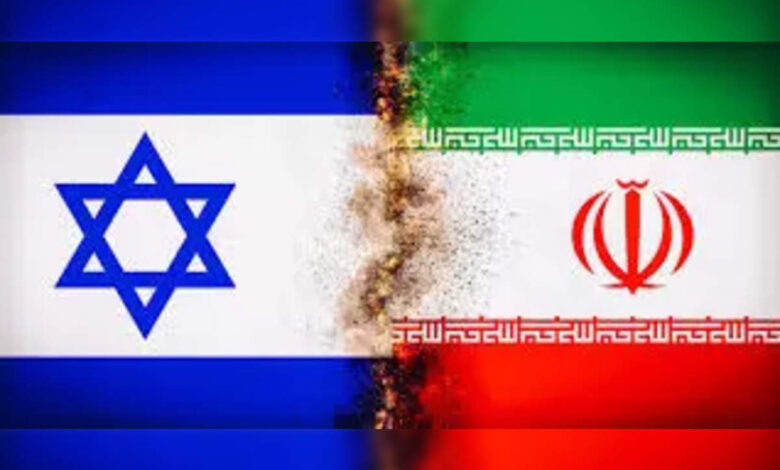
Iran-Israel Tensions: Historical Review
This conflict traces its roots in history as influenced by geopolitical, religious and ideological factors. Notably, the historical relations between Iran and Israel were tense many decades back, with moments of quiet diplomacy and periods of tension frequently punctuating those relations. Though during all the history, the two countries never officially confronted each other and in a general scale, they still could become active participants of proxy war and cyber attacks, as well as of covert operations, and the situation can be reckoned as one of the most complicated and tense in the Middle East.
Historical Background
Relations between Iran and Israel had been relatively good until the Iranian Revolution in 1979. Under Shah Mohammad Reza Pahlavi, Iran had recognized Israel and formally maintained diplomatic and economic relations with it, always low-key, given sensitivities in the region. Common interests in the two country’s relations are being non-Arab powers in the Middle East, also at hostility of Arab states. Of course, both were hostile to Soviet influence in that region during the Cold War.
After the Islamic Revolution in 1979, wherein the Shah was toppled and Ayatollah Khomeini was elected president, the relations became a radicalized affair. The newly formed government of the Islamic Republic further anathematized Israel by branding it as the “Zionist regime” and allied with the Palestinian cause. The rivalries went to another level when Iran provided financial, military, and ideological support to anti-Israeli groups like Hezbollah and Hamas.
Ideological Conflicts and Regional Power Struggles
Underlying this game of cat and mouse is a far more subtle mix of religious, political, and ideological differences. Above all, Iran sees Israel as an occupation force in Muslim territory: the Palestinian territories. And it is for that reason that Iranian leaders have regularly called for the liberation of Jerusalem and the destruction of the Israeli state. This ideologically founded approach is part of a broader ambition by Iran to be the leader of the Islamic world or at least within the Shia Muslim community.
On the other hand, to Israel, Iran has been its arch-nemesis. Iran’s pursuit of hegemony over the Middle East through surrogates in Lebanon, Syria, Iraq, and Yemen has been interpreted to Israel as a tactic to grab and strangle it. To a large extent, this proxy war has been the major way through which both countries have attempted to attack each other without directly engaging in military action.
Proxy Wars in Lebanon, Syria, and Gaza
Of course, the most obvious and clear battlefront of the Iran-Israel conflict is certainly over Lebanon. The Shia militant group Hezbollah is one of the world’s greatest militaries, with headquarters and some bases in Lebanon. They are heavily armed, funded, and cared for by the Iranian government. Founded in the 1980s with significant funding and support from the Iranian government, Hezbollah has become one of the most powerful non-state military forces in the Middle East. It was an opponent of Israel in the 2006 Lebanon War, and still enjoys a strong military and political position in Lebanon. Iran financially supports Hezbollah as well as provides it with military assistance. In turn, Hezbollah has made its possessor armed with the most sophisticating weaponry a threat to the security of Israel.
Open another indirect theatre of conflict in 2011, when war spread to Syria’s civil war. Military aid was encouraged by Iran to preserve the regime while Israel struck hundreds of Iranian targets in Syria to refuse the permanent Iranian military establishment across its borders. Hence, the centre of this confrontation has been the strategic disputed area between Syria and Israel, Golan Heights.
Another point of friction is the Gaza where the hand of Iran is very evident. Iranian provides weapons and finances to Hamas, Islamist militant organization that rules Gaza. Time and again, Hamas has bombarded Israeli cities through rockets, resulting in a counter-attack from Israeli forces. The situation in Gaza is but one facet of the general conflagration between Iran and Israel since Hamas, more often than not, acts with Iranian’s strategic help, utilizing the latter’s great leverage to breach Israeli security.
Nuclear Tensions and Quest for Regional Dominance
Arguably, one of the most important issues driving the conflict has been Iran’s nuclear program. For Israel, Iran is an existential threat, which is a nuclear Iran. Israel has taken not to let Tehran get a nuclear bomb, and this feeling has been built on the threatening rhetoric of Iranian leaders who have sometimes threatened Israel’s existence. Meanwhile, Iran insists its nuclear program was for peaceful purposes, although lack of transparency on their part has sent alarm bells ringing in many parts of the world.
Parallel to this, Israel has clandestinely been working toward stalling and disappointing nascent nuclear ambitions of Iran. For one, cyber-attacks-once-famous for the Stuxnet virus against Iran’s nuclear infrastructure in 2010-by-forcing the respective country’s nuclear scientists into murder over several years and Israel being generally assumed to be behind those operations. Simultaneously, Israel calls for tougher international sanctions and diplomatic isolation of Iran to stop its nuclear armaments.
However, Iran claims that the real threat to regional stability lies in an undeclared nuclear arsenal of Israel. Apart from keeping ambiguous its nuclear potentials, its nuclear arms possession is also seen as widespread, and it adds up to exacerbate tension in a region in which proliferation of nuclear power becomes an increasingly sensitive issue.
Cyber Warfare and Covert Operations
Iran and Israel’s cyber warfare is a new dimension of the conflict. Iran and Israel have in significant proportions invested much money into their cyber capability and are using that capability to attack each other’s strategic infrastructures. Besides the Stuxnet, there have been many reports of attacks by cyber-hacking teams against Israeli water supplies, electric power plants, and financial institutions, attributed to Iran. Israel has retaliated with cyber operations against Iranian oil facilities and governmental websites.
These cyber-attacks are another, not-so-outright tool for both sides to engage in hostilities without fear of instantaneous retaliatory, full-scale military attacks across their borders. It is a silent danger of the war, which may surely cause deep wounds economically and in security.
International Power Interests
The Iran-Israel conflict has necessarily dragged in several major world powers-particularly the United States and Russia. Traditionally, the United States has been a very close ally of Israel and continues to provide military aid to it, furnish it with high-tech equipment, and maintain high-level political support. During the Donald Trump presidency, the United States withdrew from the JCPOA nuclear agreement negotiated between themselves and Iran in 2015 and strongly reinstated sanctions against Iran. Israel also accepted this move; they were on the view that the JCPOA compromised too much on Iran’s nuclear ambitions and does not incorporate anything about its activities in the region.
At the same time, Russia is closely tied with Israel in a tense relationship, but it being an ally to the military actions of Iran against a Syrian government considered friendly to Russia, does not want its Israeli and Russian forces to clash. Such a thin balancing act represents the profounder geopolitical contours of conflict between Iran and Israel, which are an integral part of the larger competition between global powers for influence in the Middle East.
The Future of Iran-Israel Relations
The conflict between Iran and Israel is likely to remain uncertain as neither party wants to retreat from their entrenched positions. Iran will continue to arm hostile groups against Israel and will keep moving forward on a nuclear program; Israel will be on high alert, waiting for the “day” of war if it were to become necessary. Then, Iran will regard the existence of Israel as depriving it of materializing its regional ambitions as well as its idealistic visions.
Although a direct war is least likely in the proximate future, the region will remain hostage in the claws of proxy wars, cyber war, and diplomatic isolation. All that will depend on the international communities’ capacity to mediate and de-escalate it or take one step ahead toward destabilization.




